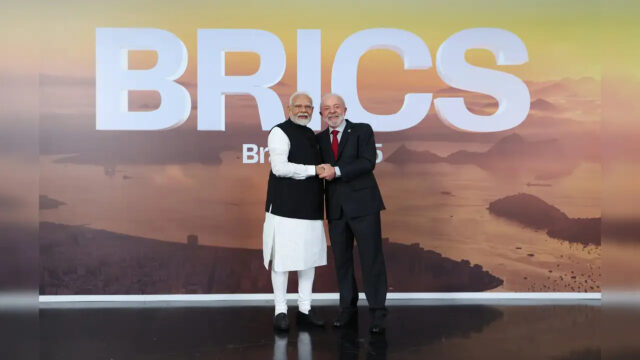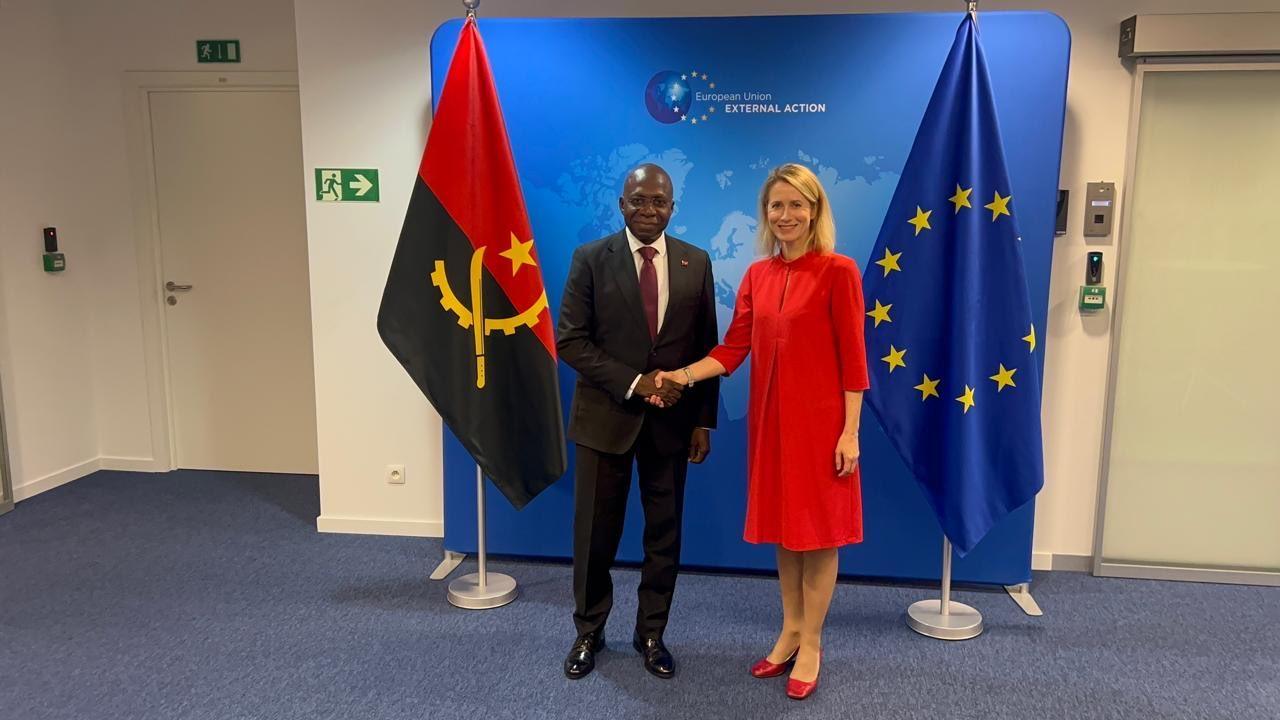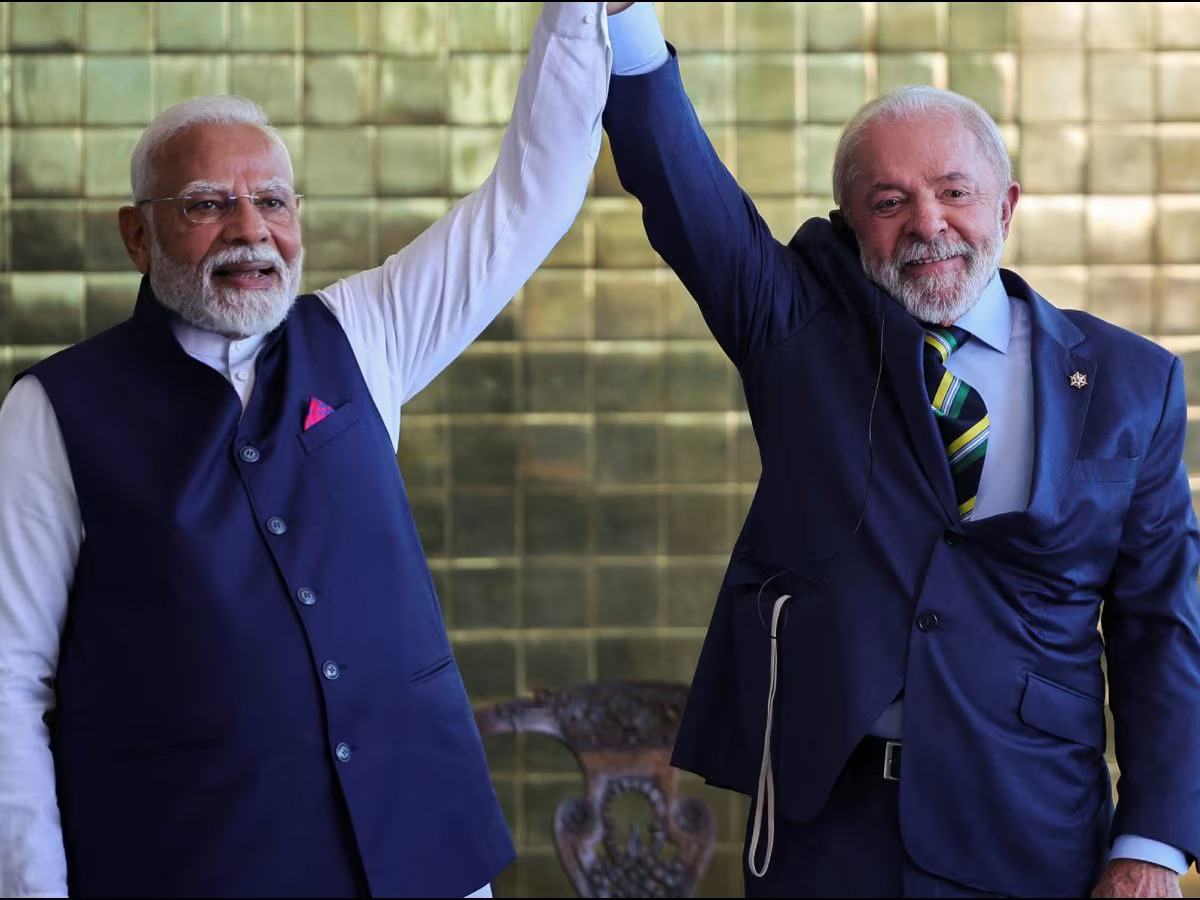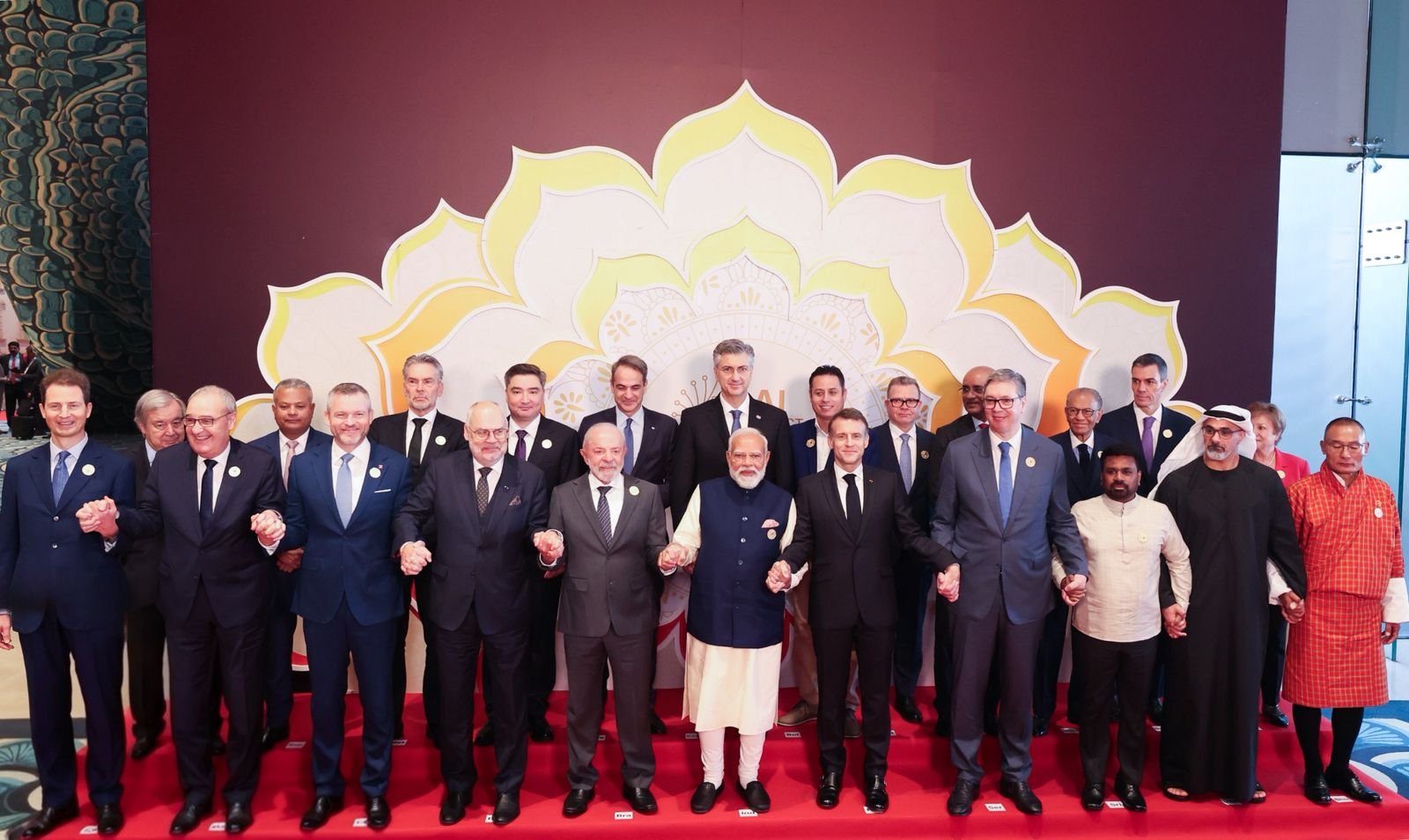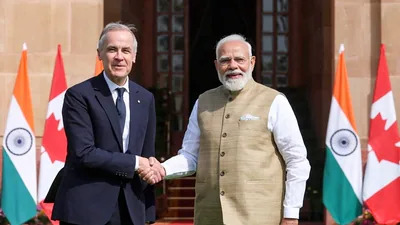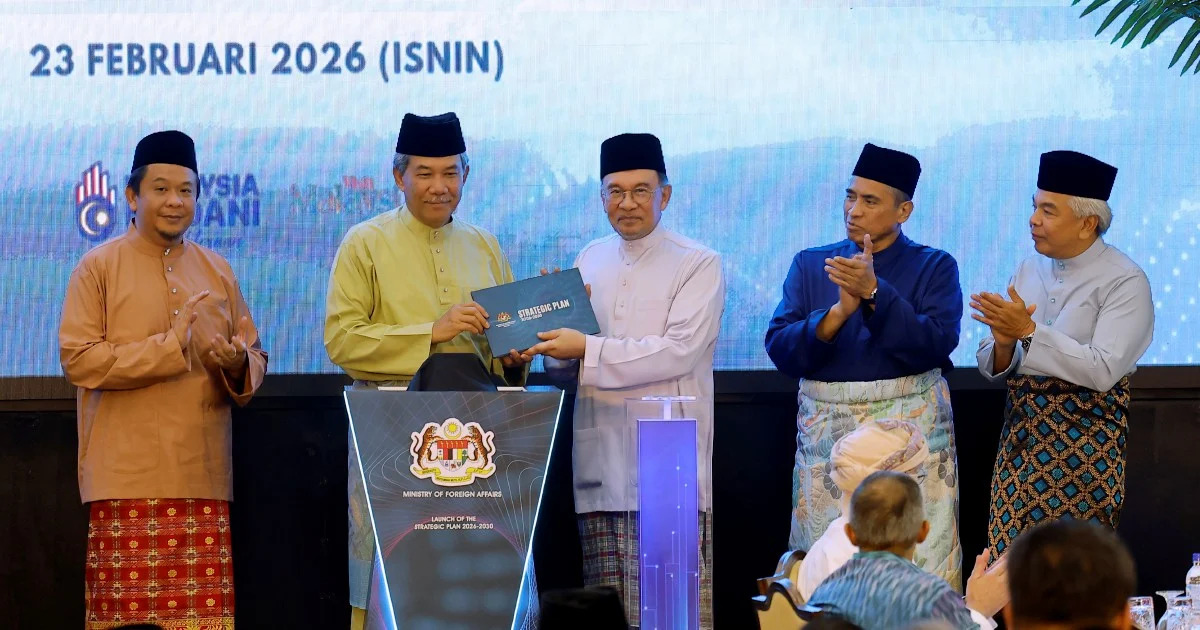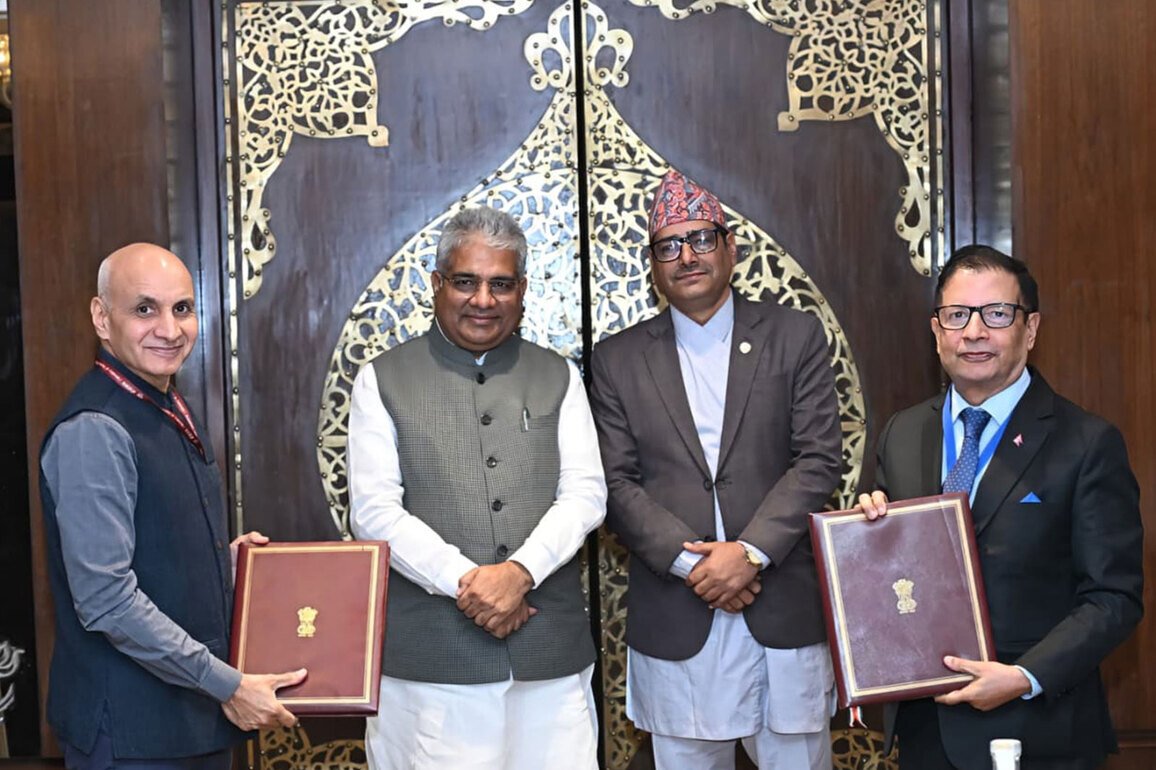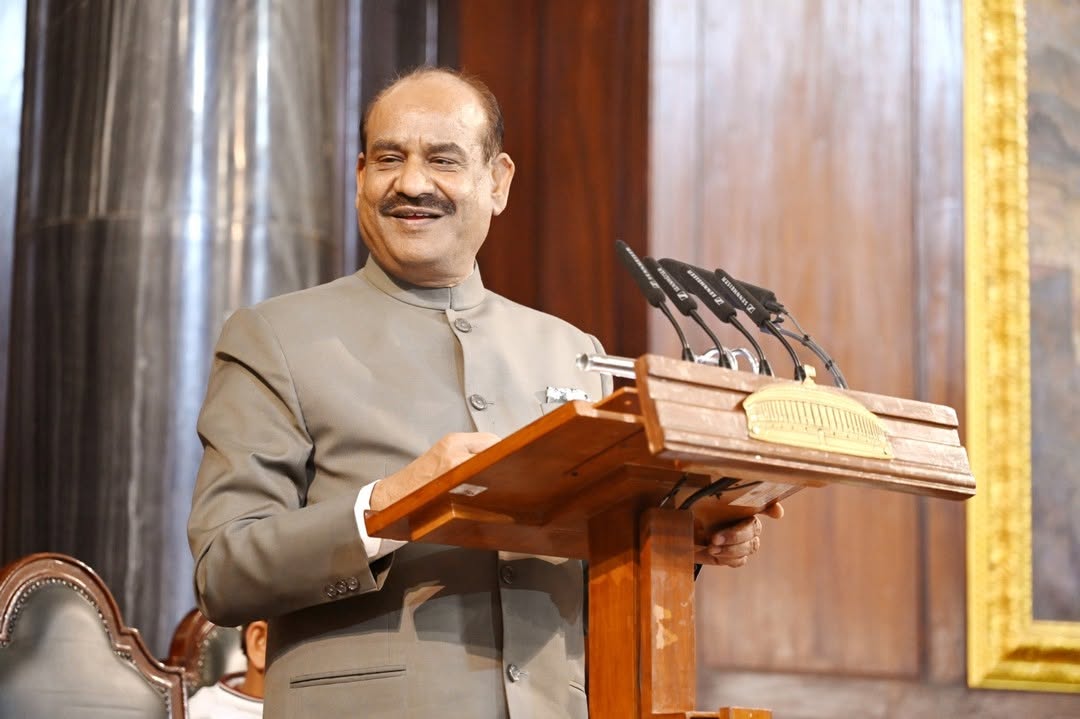The 17th BRICS Summit took place on July 6-7, 2025, in Rio de Janeiro, hosted by Brazil. Indian Prime Minister (PM) Narendra Modi along, with other leaders, participated in the summit. This year, the theme was “Strengthening Global South Cooperation for More Inclusive and Sustainable Governance”. The theme reflects the group’s commitment to strengthening multilateralism, defending international law, and striving for a more equitable global order. This year’s participation was in a large number compared to previous years, with the presence of 11 permanent members, 9 partner countries, 8 invitee countries, and 7 heads of international organisations
The opening session remarks of Brazilian President Luiz Inácio Lula da Silva attached huge importance to the participation of PM Narendra Modi, due to the fact that India is a founding member of BRICS, has been participating without fail since years, and also because India will assume chairmanship of BRICS next year.
Indian Prime Minister’s Address at the BRICS
On the first day of the summit, PM Modi addressed two matters. First, during the inaugural session on “Reform of Global Governance and Peace and Security” and later that day on “Strengthening Multilateral, Economic-Financial Affairs and Artificial Intelligence.”
On the Reform of Global Governance, PM Modi, emphasising the importance of the Global South, stated that it is underrepresented in key global institutions. He also called out for reform of outdated global governance, comparing such institutions to “phones without network.” He vouched for a multipolar and inclusive world order where there must be changes in governance structures, voting rights, and leadership positions, and the challenges faced by countries in the Global South must be given priority in policymaking.
In light of the recent terrorist attack on Pahalgam, PM Modi appealed firmly to stand against terrorism without double standards. When it comes to matters of peace and security, he stated, “Condemning terrorism must be a matter of principle, and not just of convenience. If our response depends on where or against whom the attack occurred, it shall be a betrayal of humanity itself.” He called for diplomacy-driven solutions and strict sanctions on terrorists.
In the session on “Strengthening Multilateral, Economic-Financial Affairs and Artificial Intelligence.” PM Modi briefly discusses on four areas, first on steady progress of economic cooperation amongst BRICS members, second on initiatives like BRICS Agricultural Research Platform and ‘One nation, One subscription’ for strengthening global south cooperation, third on securing supply chain of critical minerals and technology and lastly fourth one on responsible AI governance.
On the second day, PM Modi addressed the session on “Environment, COP-30, and Global Health”. He highlighted India’s environmental initiatives like mission LiFE (Lifestyle for Environment), ‘Ek Ped Maa Ke Naam’ (A Tree in the Name of Mother), the International Solar Alliance, and others and also India’s kept commitments. He called for bridging the climate finance gap, praising BRICS cooperation on global health.
Bilateral Diplomacy at the Summit
Alongside the BRICS Summit, PM Modi got the opportunity to hold important one-on-one meetings with leaders of Malaysia, Cuba, Bolivia and Uruguay.
PM Modi and the Prime Minister of Malaysia, H.E. Anwar bin Ibrahim, reviewed bilateral relations in the area of trade and investment, defence, education, healthcare, tourism, and people-to-people contacts.
President of Cuba, H.E. Miguel Diaz-Canel Bermudez, reviewed bilateral ties with PM Modi and expressed interest in India’s Digital Public Infrastructure and UPI.
PM Modi and Bolivian President H.E. Luis Arce Catacora, while reviewed bilateral relations, also recognised the potential of the critical mineral sector and the need to develop a sustainable and mutually beneficial partnership.
PM Modi and President of Uruguay, H.E. Yamandu Orsi, held discussions covering the full spectrum of bilateral relations. One of the key areas of discussion was enhancing trade and investment between the two nations. Both parties showed enthusiasm for broadening the India-MERCOSUR Preferential Trade Agreement.
Conclusion
BRICS 2025 was a projection of Global South-led multilateralism and to establish the relevance of BRICS to shape the global discourse. From calling for reforms in key global institutions to demanding representation of the Global South, considering their importance in today’s world order. BRICS adopted 126 commitments covering global governance, finance, health, artificial intelligence, climate change, and other strategic areas.

